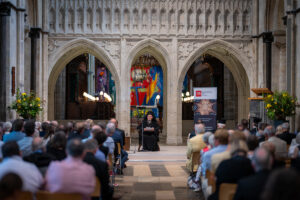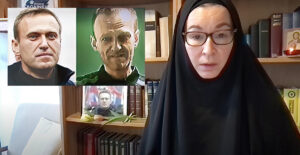The article published below appeared in Today’s Zaman by Ercan Yavuz, Ankara.
June 12, 2009
Read this article on the website of Today’s Zaman.
A high-ranking government official has said the opening of the Greek Orthodox Halki Seminary in Istanbul is not possible without a change in the Constitution because the opening of private religious schools has been banned in Turkey. State Minister and Deputy Prime Minister Cemil Cicek told Today’s Zaman that the Turkish Constitution does prohibit the establishment of private religious schools.
“The Turkish Constitution and related regulations do not make the opening of private religious schools possible. If you are going to introduce new rules regarding human rights and freedoms, you need to do it for all groups equally. How are you going to process the demands of the other groups if you open the Greek seminary?” Cicek asked. Established in 1844 on the island of Heybeliada, Halki Seminary was closed in 1971 under a law that put religious and military training under state control.
It was the only school where Turkey’s Greek minority educated clergy. The theological school once trained generations of Greek Orthodox leaders, including the current Patriarch Bartholomew, who is one of its 900 graduates.
Civil society groups have been long arguing it that was closed unlawfully and that its reopening will require political will to bypass obstacles from anti-EU groups in Turkey.
Regarding external pressures for a settlement to the issue, Turkey’s chief negotiator for accession talks with the European Union, Egemen Bagis, had said that this is an internal matter, not a foreign policy issue. Bagis had reacted to a statement of the European Union’s Enlargement Commissioner Olli Rehn, who tied the issue to the long-standing Cyprus problem.
Evaluating the matter as a human rights issue, Bagis said they are looking for formulas to reopen the school and said the Cabinet will discuss it.
During his historic visit to Turkey in April, US President Barack Obama also talked about the steps Turkey can take — such as reopening Halki Seminary — to send a message to the world regarding Turkey’s further steps forward in freedom of religion and expression issues.
In order to bypass constitutional obstacles, not only the ruling Justice and Development Party (AK Party) but also the previous governments have offered formulas such as having the Halki Seminary under the Ministry of Education or the Higher Education Board (YOK). But the Patriarchate rejected it.
The government also would like to pursue a constitutional amendment, but the main opposition parties, the Republican People’s Party (CHP) and the Nationalist Movement Party (MHP), do not support it.
Another obstacle in front of the opening of the seminary is the Turkish military. Until 2004, a military document listed the Halki Seminary as one of the “threatening” factors related to the military’s perception that the school supported the foreign forces that invaded Turkey during the War of Independence. The military took the school off of the list, but it remains cold to the idea of the reopening of the school.
The military is also uneasy about reopening a school in which there will be permission for religious attire, as this might lead to the freedom of religious dress in Turkish schools.
In that regard, observers say the issue also relates to Turkey’s interpretation of secularism, because some groups are concerned that providing minorities with their religious rights could force the government to grant more rights to its Muslim citizens. They say if this mistrust is alleviated, the Halki Seminary issue will be more easily resolved.
On the other hand, the Patriarchate rejected the government’s formulas of putting the seminary under either the Ministry of Education or YOK because the Patriarchate is an institution under the assurance of international law, as Article 40 of the Treaty of Lausanne states. The Patriarchate argued that Halki Seminary has never been a college or university, but only a minority school or religious institution as defined under the Treaty of Lausanne.
The main request of the Greek Patriarchate is to open the seminary as a private school affiliated with the Ministry of Education, which would oversee its administration.
Foreign Ministry: Halki Seminary domestic issue related to our own citizens
The Foreign Ministry on Thursday firmly ruled out any suggestion linking requirements of an additional protocol to the customs union between Turkey and the European Union with the issue of the re-opening of the Greek Orthodox Heybeliada (Halki) Seminary.
Ankara is under EU pressure for implementation of an additional protocol to the customs union on Greek Cyprus to open its seaports and airports to Greek Cypriot traffic as well as for reopening the Halki seminary on the island of Heybeliada near Istanbul, which was closed to new students in 1971 under a law that put religious and military training under state control.
The EU, which suspended accession talks with Turkey on eight of the 35 negotiation chapters in 2006 over Turkey’s refusal to open its ports and airports to traffic from Greek Cyprus, will review the situation by the end of this year. A news report in Sabah daily suggested Wednesday that the EU could turn a blind eye to Turkey’s unfulfilling implementation of the additional protocol in case if it opens the Halki Seminary by the end of the year.
Ankara’s proposal – for opening its ports and airports to Greek Cypriot traffic if international isolation of the Turkish Cypriots is lifted by the EU as promised once – is still on the table, Foreign Ministry spokesperson Burak Ozugergin first of all noted when reminded of the mentioned news report.
Turkey’s EU accession process and the Cyprus issue are two separate processes, Ozugergin said, adding that the EU has not brought up any suggestion linking the additional protocol issue and the Halki seminary issue either.
“The Heybeliada Seminary issue has long been on agenda. In consideration of the substance of the issue; it is related to your own citizens who are non-Muslim minority. It is an issue for us and our various official authorities have been currently working on this issue,” Ozugergin said, citing the Education Ministry as one of those official authorities. “We will see the result [of those efforts] in time. However, this decision, is a decision to be my by the Turkish Republic independently and as separate from other issues.”
The theological school once trained generations of Greek Orthodox leaders, including the current patriarch. The seminary remained open until 1985, when the last five students graduated. An ethnic Greek but a Turkish citizen, Istanbul-based Fener-Greek Orthodox Patriarch Bartholomew says the dwindling Orthodox community could soon die out in Turkey if the seminary is not reopened.







